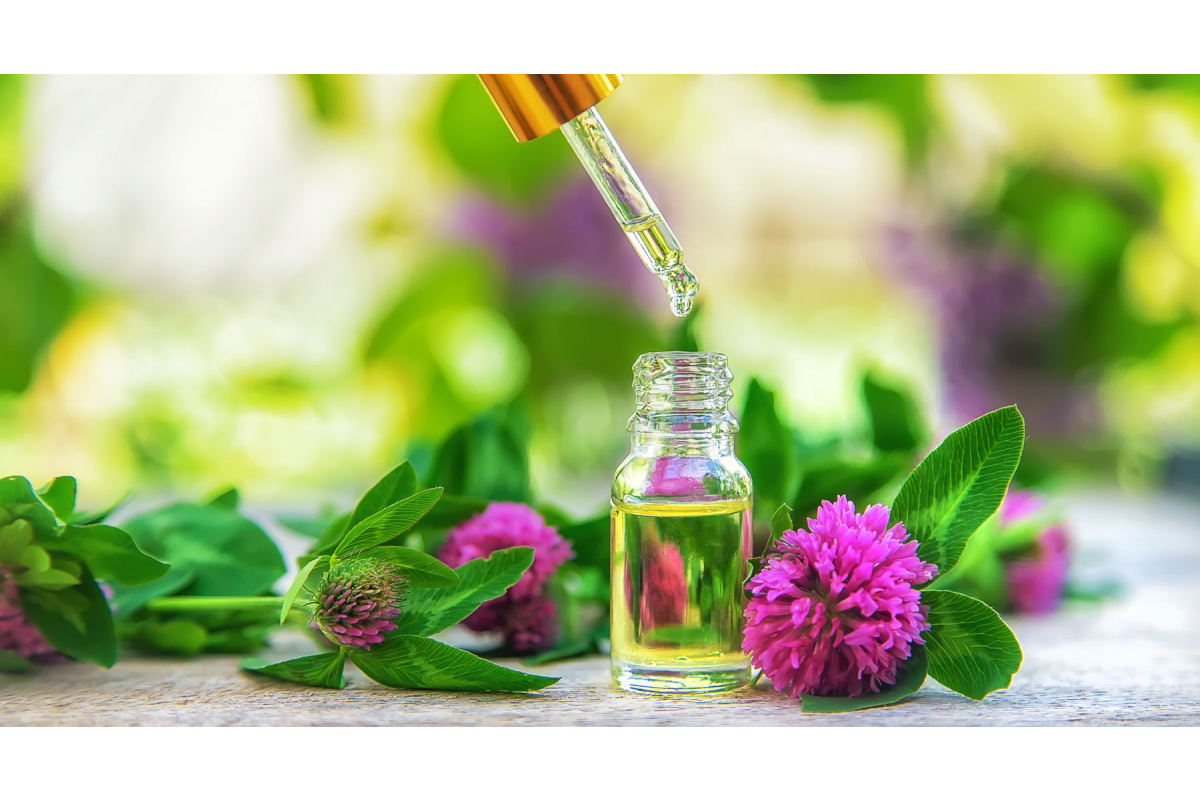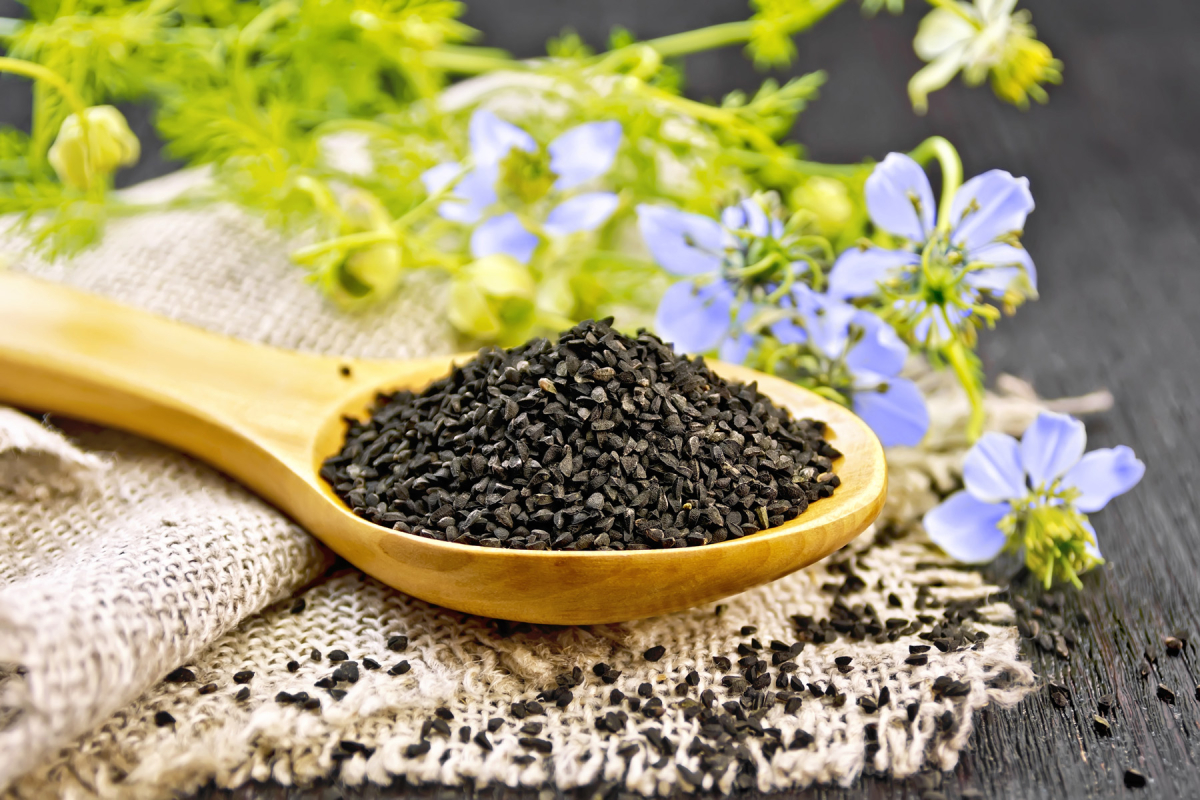Black seed, also known as Nigella Sativa, is a plant that grows primarily in South and Southwest Asia. It is known for its small, black seeds, which have been used for thousands of years for their diverse medicinal and health-promoting properties. The highly valued black cumin oil is extracted from these seeds.
Black seed oil, often referred to as "miracle oil" or "gold of the pharaohs," is rich in nutrients beneficial to health. It contains thymoquinone, a powerful antioxidant, as well as omega-3 and omega-6 fatty acids, phospholipids, amino acids and vitamins B1, B2 and B3.

Health Benefits of Black Seed Oil
Health claims are specific claims, reviewed and approved by EFSA, that establish a relationship between a food or food ingredient and health. These statements are based on extensive scientific evidence.
It is important to note that the fact that there are no specific health claims for black seed oil does not mean that this oil has no health benefits. It just means that such benefits have not been scientifically proven to the extent that they can be recognized by EFSA as a health claim.
Black seed oil has traditionally been used for a number of health benefits, including supporting the immune system, improving respiratory health and reducing inflammation. However, these uses should be viewed with caution until supported by rigorous scientific studies. As always, one should consult a doctor or nutritionist before adding any new supplements to one's diet.
Intake of black seed oil
Black seed oil can be taken in a number of ways. It can be taken directly, added to food or drink, or applied topically to the skin and hair. When taking it, it is important to follow the recommended dosage, as excessive doses can lead to undesirable side effects. The typical dosage is between a teaspoon and a tablespoon per day.
When using black seed oil to improve skin and hair health, it can be applied directly to the affected areas. For hair care, the oil can be massaged into the scalp and left on overnight before washing out the next morning. For skin problems, it can be applied directly to the affected areas and massaged in gently.
It should be noted that black seed oil has a fairly powerful effect and can cause irritation in sensitive skin. It is therefore advisable to test the oil on a small area of skin first to ensure that an allergic reaction does not occur.

Potential side effects and precautions
Although black seed oil is generally considered safe, it can have side effects in some cases. These can include skin irritation, allergic reactions, and upset stomach. It can also interact with certain medications, particularly those used to thin the blood or regulate blood pressure.
Pregnant and lactating women, as well as those with certain health conditions, such as a compromised immune system or bleeding disorders, should consult a doctor before taking black seed oil.
Final Thoughts
Black seed oil is a truly remarkable natural remedy with a long history and a multitude of health benefits. From boosting the immune system to promoting heart health to improving skin and hair health, this versatile oil can help increase overall well-being and help maintain good health.
However, as with any dietary supplement, it's important to use it responsibly and consider the potential risks and side effects. It is always advisable to consult a doctor before taking black seed oil or any other natural remedy.
Despite these precautions, black seed oil remains an intriguing and valuable part of natural health care. With its unique combination of nutrients and health-promoting properties, it can be a valuable addition to a balanced diet and healthy lifestyle.
Order high-quality black cumin products











